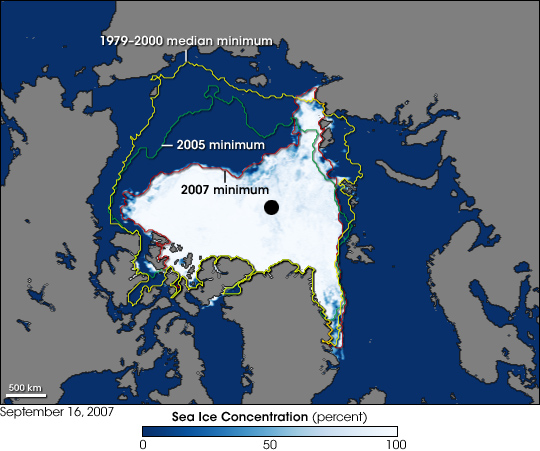megaman79 said:
Sqrl said:
vlad321 said:
Kasz216 said:
I understand what your saying... but there isn't anything that supports this. As such i'm going to have to go with the "null" until actual research is shown otherwise. |
On the other hand we don't really know that it doesn't affect anything in a way that could tip something irreversible. We just don't know enough to say either way. For instance, just because no one knew of calculus and gravity before Newton, doesn't mean those laws didn't exist beforehand. There has always been a cost/risk with many decisions, and I wager that the risk here far outweighs several trillion dollars in potential damages.
|
Except that people in third world countries are dying because of environmental policies meant to fight global warming. Without access to their country's coal to raise themselves out of poverty, like the developed world was able to do, they are living a life where survival is constantly in doubt.
In short, to the extent that there are things we can do that genuinely do not have downsides (such as conservation, advancing research in Fusion power, etc...) we should absolutely do whatever we can because those things have other upsides typically as well. But that line has to be drawn at policies which do have a cost measured in human lives and yes even monetary costs that threaten economic stability.
|
Link that for me please.
I know of two major effects on the third world, severe and extended droughts and also food pricing due to biofuel production, but i have never heard that coal is restricted in these countries at all, and further more that is our fault for causing it.
|
A lot of this issue was hashed out after AR2 (the first IPCC report to officially attribute GW to man), at the time I believed the AGW theory and it is what initially got me interested to study the matter. As a result of the timing most of this is archived info, but I dug up an article from the period as an example of what I was referring to:
Link - This is an archived NYT article from 1997 (AR2 was released around 1995 iirc).
....
"Very many of us are struggling to attain a decent standard of living for our peoples," he said, "and yet we are constantly told that we must share in the effort to reduce emissions so that industrialized countries can continue to enjoy the benefits of their wasteful life style."
The issue is more complicated -- and possibly less intractable -- than it might seem on the surface. The arguments conceal factors believed by many, including Mwandosya, to contain elements of a constructive approach.
One good sign, the Third World countries say, is that they have already lessened the rates at which their emissions are increasing. A recent study by the World Resources Institute, a Washington-based research organization, found that many key Third World countries, have cut or eliminated energy subsidies and as a result are emitting less carbon dioxide than they otherwise would have.
Cutting the subsidies has raised energy costs and thereby discouraged the burning of coal and oil. The pricing changes were undertaken for economic reasons, not environmental ones, the report said, but the effect on carbon emissions was the same.
....
I doubt you will take my word for it, but the stuff about "economic" reasons was political BS from the time. A fact that should make quite a bit of sense to anyone who is familiar with the process of economic development. Coal and oil were and are crucial to developing industrialized economies* that can help sustain (and improve the quality of life for) the populations of an already stressed third world country, there are no real economic reasons for third world governments to discourage it in that situation**, but there are plenty of environmental reasons (the specter of global warming chief among them).
*A quote from the paper, the bracket notes are added by me for context: "The principal findings are that energy used per unit of economic output has declined [industrialized nations], but that this is to a large extent due to a shift in energy use from direct use of fossil fuels such as coal to the use of higher quality fuels, and especially electricity. When this shift in the composition of final energy use is accounted for, energy use and the level of economic activity are found to remain fairly tightly coupled."
**(I'm sure there might be specific countries with an odd set of circumstances but by in large this is true)
This whole debate at the time really brought a lot of third world countries to the table in the hopes that they could draw money out of industrialized nations. This is what shaped the current debate into a discussion of wealth transfers like some of those discussed at Copenhagen recently. In a lot of ways it has lampooned the efforts for any serious progress on the matter, but that is really a whole other topic.
The bottom line is global warming policies do advocate that third world countries stop using or at least limit the use of hydrocarbons while the use of those hydrocarbons is linked to the economic growth that would quite literally save lives the same way our own economic development has helped the industrialized world live longer and healthier lives. Let me know if you disagree with this.































































